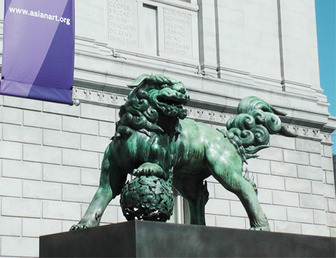All Articles
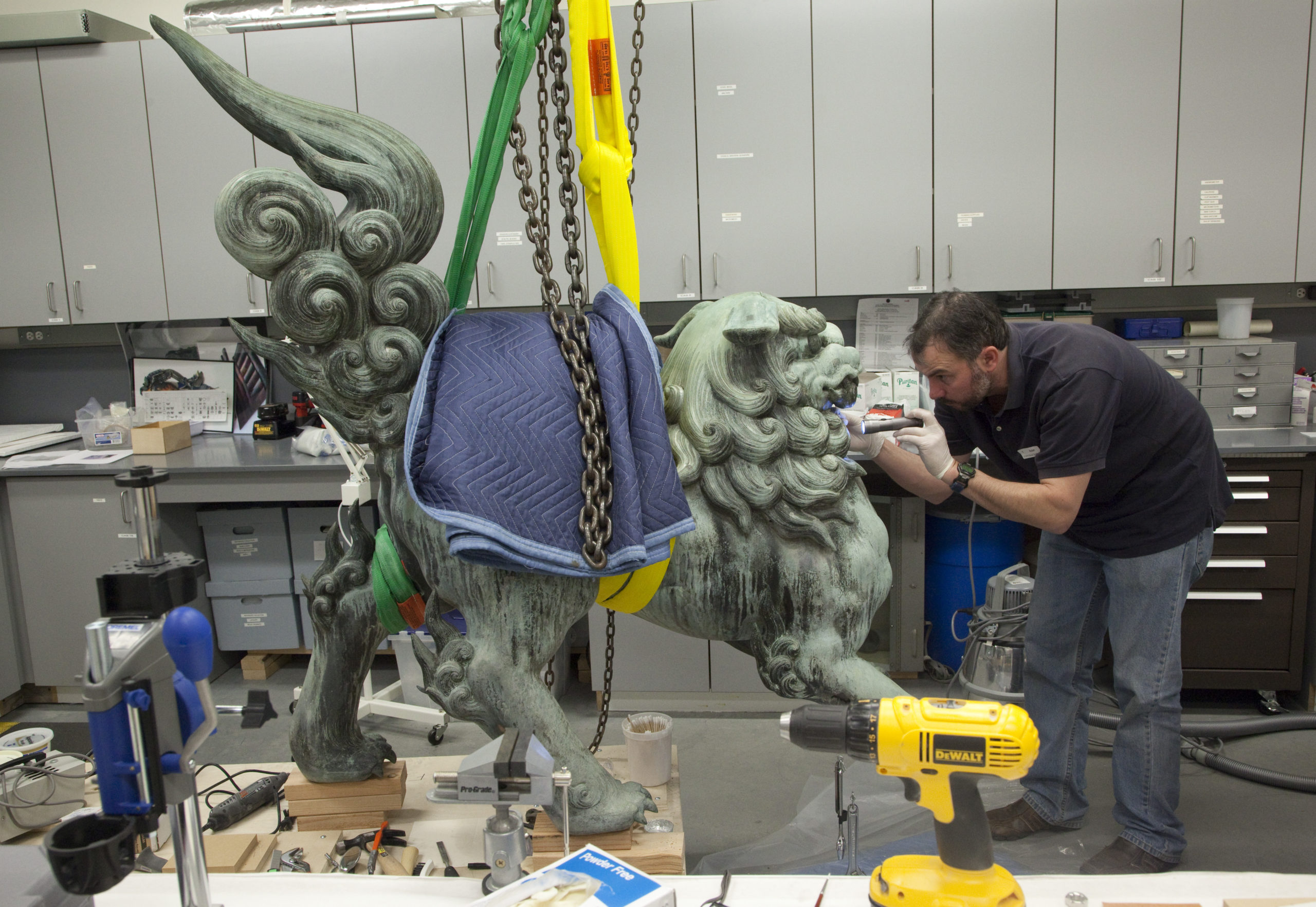
May 13, 2013 brought exciting new residents to the museum: two Japanese bronze lions flanking the front entrance.
Lion figures traditionally serve as symbolic guardians outside temples and shrines in Japan, and the custom continues at many public buildings today. In the case of a museum, however, conservators and other specialists return the favor, working to protect the sculptures from weather and damage.
In 2011, a private donor offered the Asian Art Museum a pair of monumental bronze Japanese lions. Lions like these serve as guardian figures at Buddhist temples and Shinto shrines throughout Japan, but the extraordinary size and dynamic pose of these two make them a perfect fit for the museum’s grand front entrance.
Bronze lions of such a large size are rare to begin with (most are carved stone), and few survived Japan’s mandatory metal collections during the second world war. Bronze is a durable metal alloy composed of copper, tin, lead and other metals, and under good conditions it will survive for thousands of years. But a busy urban environment causes extra wear and tear, so a multi-stage conservation plan was needed.
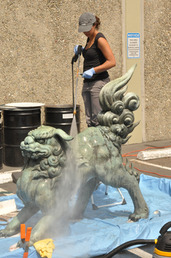
After a thorough examination including metal analysis, radiography, and even a look inside the hollow bodies, the surface of the lions was thoroughly cleaned. Elizabeth Saetta, a conservator specializing in sculpture, used pressurized water to reduce surface corrosion.
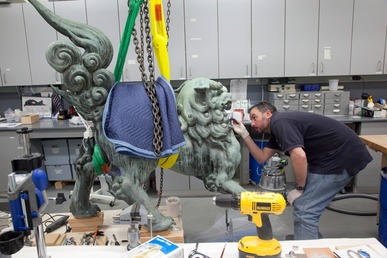
Next, conservator Adam Nesbit repaired damaged areas on each lion’s mane, tail and paws. For over a century, the lions have been on public display. There was plenty of evidence of hard wear: a series of past repairs, cracks and small losses. A surprise find was a group of towels, used in earlier repairs, tucked inside some of the feet of the lions!
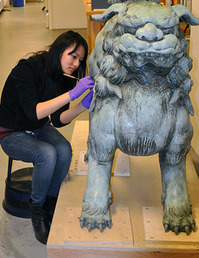
Smaller repairs followed, including many fine fills by conservation technician Jocelyn Chan. Lastly, a series of protective coatings was applied to seal the surface and prevent rainwater from soaking in. A final coat of hard wax, regularly renewed, will make cleaning and maintenance much easier. Our lions will receive regular grooming from now on.
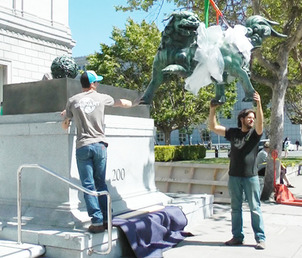
Next, custom steel bases were fabricated so that the lions could be securely attached to the stone plinths on the museum’s front steps. Cranes lifted them into place, and now these gallant lions greet visitors from each side of the front steps. What 凛々しい (ririshii: gallant, imposing, awe-inspiring) figures!
